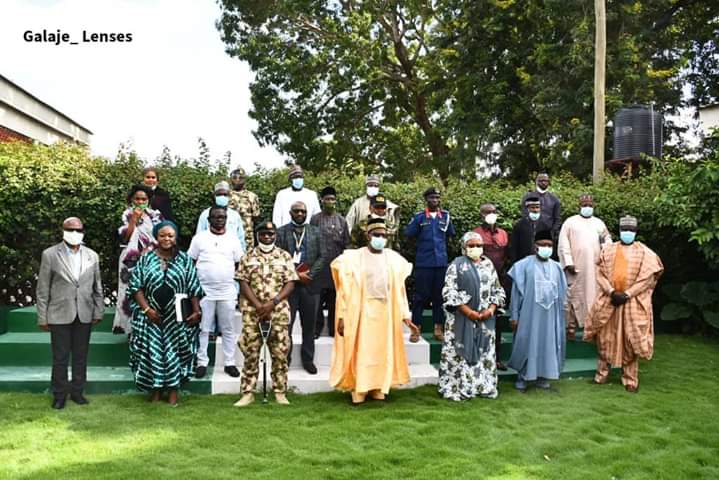NABDA partners ABU Zaria to improve TELA Maize

The National Biotechnology Development Agency (NABDA) says it will work with the Institute for Agricultural Research (IAR) of Ahmadu Bello University Zaria to promote genetically improved TELA Maize towards enhancing biotechnology usage, research and development in Agriculture.
Prof. Abdullahi Mustapha, Director-General, NABDA made this known while briefing newsmen as part of the activities to celebrate the harvest of third set of trials for the TELA Maize Project on Tuesday in Zaria.
He said the harvest has shown that the institute has perfected the deployment of biotechnology into the agricultural sector as it has taken the challenge of Fall Army Worm which caused a huge devastation to maize farmers some years back.
He added that NABDA would continue to work with IAR and other institution s across the country to promote biotechnology research and development in agriculture to revive the sector and make it a net contributor to the country’s GDP.
“In each and everything you do some people would negate it, there is no scientific evidence that says improving crop using biotechnology has negative effect to the health.
The NABDA boss challenged anybody who has scientific prove that biotechnology developed crop to resist insect, or drought could cause certain ailment or misfortune in the human body to present such evidence.
Prof. Rabiu Adamu, Principal Investigator said the research was about increasing the productivity of rice in Nigeria.
Adamu noted that in the recent past maize yield were very low less than three tons per hectare but with the Institute’s researches on new seed variety it shows that we can obtain upto eight tons per hectare.
He added that production of eight tons per hectare was more than double of what farmers used to get on their field.
The principal investigator said the Institute was working on some hybrids and varieties that were resistant to drought and insect pest such as stembora and fawl army worm.
He added that harvest has indicated some level of success on the research on the improved variety that is resistant to insect and drought, stressing that it was a third trial and the result has been consistent.
Adamu said with the consistent result, the Institute would summit a dosier for environmental release and further work outside the research station; we will go to the farmers field in the states for them to test the viability of the variety and its performance.
“We are hoping that in the two years the variety would be accessible by Nigerian farmers so that they can grow it and improve the general productivity of maize in the country.”
In 2020, Nigeria produces 12 million metric tons of maize and the country requires 18 million metric tons of maize to feed its people and supply it’s industrial requirements.
“Therefore, we need to do more to bridge the gap,” Adamu said.
Earlier, Prof. Mohammad-Faguji Ishiyaku, Director, Institute for Agricultural Research said the savings farmers would make from the maize was to be over three billion naira from insecticides spray of 500 hectares land and six billion naira from drought effect. (NAN)



